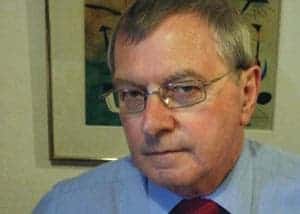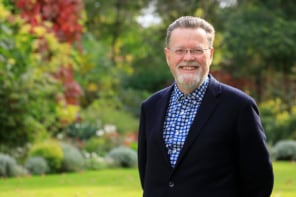Ray Bowden is chairman of The Wine Society, a member-owned organization established in 1874. With a turnover of £60m, the society buys quality wines that it sells solely to its members

How did your interest in physics develop?
From an early age I had a natural curiosity about the physical world, and this was reinforced by some excellent teaching at my grammar school in south Wales. I remember passing a small iron foundry on the way to and from school in the 1950s and being drawn to its door to watch the pouring of molten iron.
How much did you enjoy your degree?
In 1957 I won a state scholarship and went to study physics at Imperial College London. I enjoyed all the new ideas I was exposed to, but as time went on I found myself increasingly interested in many other subjects. Nevertheless, I went on to Oxford University to do a DPhil on the structure of the carbon nucleus.
Why did you leave physics for the City?
After my DPhil I worked for a year as a reactor physicist with English Electric in Leicester, but I didn’t enjoy the desk-bound existence. I also realized I was not destined to have a glittering career as a physicist. The big change came when I saw an advertisement for an 18-month-long fellowship at Keble College, Oxford, for a scientist who wanted to read a non-scientific subject. My application was successful so I headed back to Oxford to study economics and management. After that finished I decided to spend a year on an aid project in a developing country and an opportunity arose to go to Tanzania. Unfortunately, the scheduled departure was delayed for nine months.
What did you do then?
A panic job search led to interviews with computer companies, an inventor and a stockbroker — the latter of whom gave me a peep into a world I knew absolutely nothing about. That interview went well, and I was offered a job as a trainee investment analyst. The job was fascinating. It involved visiting a whole range of companies and having access to chairmen, chief executives and finance directors, seeing their factories and getting to understand their businesses.
How did your career develop from there?
I made it to Tanzania in 1967, and after a year spent there I returned to the City as a stockbroker. In 1974 I was made a partner and later became head of research, before finally becoming one of the managing partners. After the City “Big Bang” in 1986 (which saw several major changes to the London Stock Exchange, including the introduction of electronic dealing), virtually all stockbroking partnerships were bought by banks and I found myself an employee of NatWest. I decided after a few years that a big bank was not for me and in 1988 I moved to the much smaller investment bank Robert Fleming, from which I retired in 1999.
How did you come to be chairman of The Wine Society?
While I was at university, I discovered a growing enjoyment of wine, and formed a fortunate friendship with a botanist at Oxford (now a distinguished wine-maker in Australia) who was a member of the society. I attended the society’s annual general meeting in 1970 and 1971, and during the latter I rather timidly stood up to make a point. This resulted in an invitation to meet the then chairman, who suggested that I stand for election to the committee. I was duly elected to the committee in 1973, became treasurer in 1976 and chairman in 1992.
How has your physics helped in your career?
The more exposure I have had to the business world, the more I have appreciated the benefits of the analytical disciplines that physics instilled in me. A key skill of an analyst is to ask the right questions, and a key skill of a physicist is to expect the answers, the opinions, and statements of others to be consistent with the available data. These skills also help one to jettison one’s own prejudices and ideas when they do not hold up in the face of the available information. I cherish two quotes. One was in an article about an American chief executive who had on his desk a card saying “In God we trust. All others bring data”. The other is from Professor Sayers of the London School of Economics in 1960: “The decisions of tomorrow are influenced by today’s slipshod history of yesterday.”


